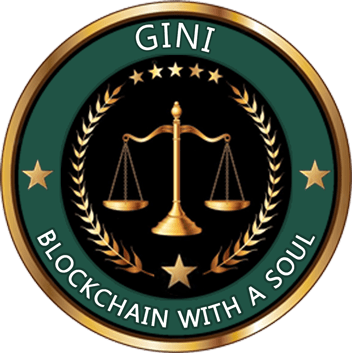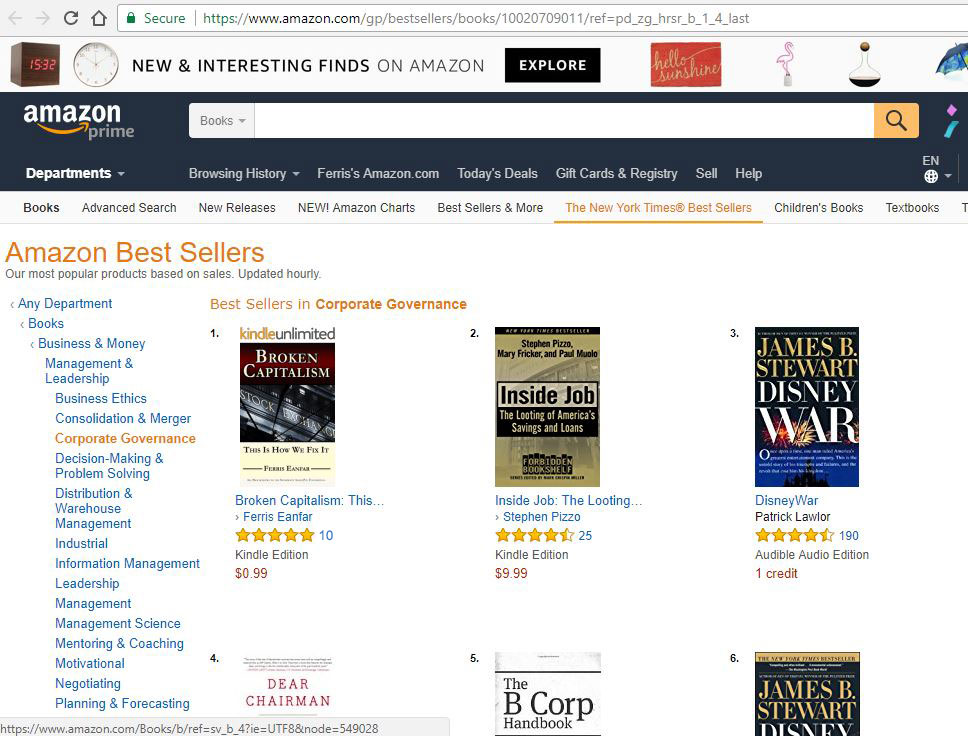Introduction to Gawker v. Peter Thiel. The initial inspiration for this article was the recent Gawker v. Hulk Hogan lawsuit, in which the famous wrestler Hulk Hogan sued the online gossip magazine Gawker for invasion of his privacy. However, there’s an even more interesting backstory that I’ll informally label as Gawker v. Peter Thiel. It was recently revealed that Peter Thiel (the tech billionaire) bankrolled Hogan’s $10 million legal defense. Since then, I’ve seen several well-intending articles about how the First Amendment is under attack when billionaires use their financial power to attack media organizations. The people embracing these arguments probably have never been attacked by an abusive media company with a multimillion- or multibillion-dollar operating budget.
Gossip Magazines Are Not Constitution-Friendly Business Models. The people who are worried about billionaires suing gossip media companies don’t seem to understand that the business model of abusive media companies like Gawker is to make some people suffer for the opportunity to take money from a much larger number of people in the form of paying customers. This is not a Constitution-friendly or viable business model because it inevitably leads to an ever-increasing temptation for the media company to find ever-more constitutionally dubious ways to make people suffer. Sooner or later, virtually all of these gossip media companies will get legally spanked into bankruptcy because they don’t really understand the distinction between exercising free speech and perpetrating an invasion of privacy.
Free Speech is Not Equal to Invasion of Privacy. I don’t always agree with everything Peter Thiel says, but I respect the philosophical consistency of his arguments. In this case, for anybody who thinks deeply about the Gawker case, I would hope they arrive at a simple conclusion: “free speech” is not equal to “invasion of privacy.” What’s the difference? Speech is a form of communication. In contrast, an invasion is a form of penetration through a real or metaphorical wall; thus, an invasion of privacy is the act of penetrating through a person’s metaphorical wall of privacy, known in legal circles as “a reasonable expectation of privacy.”
Unwanted Penetration Causes Damage and is Not Constitutionally Protected. An act of penetration is a distinct species of action from an act of speaking. When a nation’s defenses are penetrated by an invading army, the nation suffers severe economic and humanitarian damage. When a woman is penetrated by a rapist, she suffers severe emotional and psychological damage. When the wall of a space station is penetrated by a space rock, astronauts die. Unwanted penetration almost always causes damage.
Unwanted Speech is Constitutionally Protected, Regardless of Damage. In contrast to unwanted penetration, true facts and non-defamatory opinions expressed as free speech have intrinsic power to do good; they can also do harm to entities that are fueled by lies and deception, but there is nothing illegal about unleashing facts and truth for any reason. This is because human civilization is predicated on a universally shared belief that truth is generally good even when it creates pain. In contrast, false facts and defamatory opinions also have the power to do good and harm, but falsehoods and defamation are not constitutionally protected speech because this species of speech is tainted with a poisonous substance that we call malicious intent.
Society Derives No Meaningful Benefit from the Monetization of Misery. Malicious intent is the philosophical link between constitutionally unprotected speech like defamation and a constitutionally unprotected act like invasion of privacy. However, there is a continuum of tolerance that exists in every society, which reflects a collective desire to maximize public good and minimize public harm. For example, when an entity has an intent to protect society from imminent harm—as exemplified by good-faith investigative journalism—then certain breaches of the privacy wall may be tolerated by a free society because public good is achieved by exposing criminal behavior that threatens to inflict public harm. Unfortunately for companies like Gawker, society derives absolutely no meaningful benefit from privacy-invading gossip magazines that exploit private sex videos to monetize the misery of their victims.
How Protected Speech Mutates Into an Unprotected Invasion of Privacy. Pure speech always exists outside the metaphorical privacy wall, which means it is always protected by the First Amendment because the essential mechanism of “speech” alone can never be an actual threat to another person’s liberty. The pure act of speech must be mixed with another substance for it to become a threat to liberty. When an abusive person or organization (an “entity”) penetrates behind another entity’s privacy wall, purloins private information, and uses that private information with the malicious intent to inflict pain or suffering through the mechanism of speech, whatever was taken from behind the privacy wall becomes mixed with the speech. This “material” is the substance that taints the speech, which mutates the speech into a malicious invasion of privacy that creates public harm if it is not stopped. At that instant, the speech is no longer protected by the First Amendment because it has been corrupted by another substance, i.e., whatever material was behind the privacy wall that was illicitly absorbed into the speech.
Why Is There No “Right to Privacy” in the Constitution? The word “privacy” is not found anywhere in the U.S. Constitution. Although the U.S. Founding Fathers were exceptionally wise, in the 1700s they could not even imagine simple photographic camera technology, let alone real-time surveillance networks, Facebook, and YouTube that can broadcast your most intimate secrets to billions of people within seconds. The omission of the word “privacy” from the Constitution was certainly not deliberate, nor was it a negligent oversight; it was simply beyond the horizon of their 18th Century awareness. Does this mean that all Americans must be condemned for eternity to live like naked animals under the constant glare of self-serving Prison Guards in their ever-looming watchtower?
Establishing the Conceptual Legal Foundation of Privacy Laws. The omission of the phrase “right to privacy” in the Bill of Rights is the primary reason why companies like Gawker have historically been able to operate with relative impunity. However, the idea of protecting an individual from “unnecessary searches and seizures” (an obvious reference to the concept of privacy) is explicitly enshrined in the Fourth Amendment. Additionally, the Fifth Amendment prohibits the taking of “private property . . . without just compensation.” Both of these Amendments can be legitimately used as the conceptual legal foundation upon which to pass state laws that extract punitive damages from media companies that steal privileged materials from behind their victims’ privacy wall. These financial penalties could then be used to compensate their victims whose loss of dignity, loss of happiness, and emotional distress certainly represent a significant loss of value in their lives, which requires substantially equitable compensation.
Does the Bill of Rights Only Protect Against Federal Government Abuse? Although the Bill of Rights was intended to provide restraints against an abusive federal government, the principles of the Fourth and Fifth Amendments clearly have direct relevance throughout any civil society. Moreover, the Bill of Rights does not explicitly contain the phrases “don’t murder,” “don’t steal,” “don’t defraud,” “don’t rape,” and many other obviously counterproductive actions that harm the public; yet, federal laws have been passed to protect citizens from these and virtually every other conceivable threat, many of which are relatively trivial and do not justify the cultural and economic overhead of federal intervention.
A “Right to Privacy” Must Exist and Should Be Enforced. In contrast to most other state and federal laws, the idea of protecting a citizen’s “right to privacy” is so essential to human dignity and human happiness that any objective analysis of the U.S. Constitution and Declaration of Independence will reveal that a “right to privacy” is just as important and necessary as any of the rights that have already been defined in the Bill of Rights. Any rational, good-faith legal or sociological analysis should also conclude that a right to privacy must exist and must be protected based on the preponderance of evidence from many sources of law and culture, which collectively supports the premise that a right to privacy is absolutely in the public interest.
Should Privacy Rights Be Enforced at the State or Federal Level? As of mid-2016, there is an incoherent patchwork of privacy laws that exist in a handful of privacy-friendly states. In general, laws should be organically created and enforced at the state level to avoid unnecessary waste and abuse of taxpayer resources at the federal level. However, in this case, I worry that many state legislatures today are being held hostage to powerful special interest groups who may be blocking the passage of their state privacy laws. When it comes to any principle that is important enough to enshrine as a fundamental human right—especially anything that can almost instantly destroy your career and your life—I don’t mind if it’s enforced by federal legislation. However, I would prefer to see state legislatures take the initiative to expeditiously fix this glaring weakness in our nation’s human rights profile as soon as possible.
If Your Business Depends on Free Speech, Don’t Violate Human Rights. Unwanted speech may or may not cause damage, but any damage it might cause must be derived from its intrinsic power without any assistance from privileged material hidden behind the privacy wall. A media company that monetizes human misery does not serve the public interest and will invite attacks from many directions. Nobody has a right to make money from somebody else’s misery or private information. Any organization that trades on the First Amendment must understand this principle; otherwise, they will eventually be legally spanked into bankruptcy.
Understanding the Privacy Wall Through the Lens of Crime Scene Drama. The concept of the “privacy wall” is pretty abstract and can be difficult to understand. So let’s relate it to a principle that every television crime show aficionado understands: Tainted evidence at a crime scene can completely destroy an investigation because it destroys the integrity of the investigative process. Without untainted evidence, judges can’t be sure that their analysis of a situation is based on true and accurate facts. The interesting thing is that nothing at the crime scene may have changed at all, but the mere discovery that evidence was not properly handled instantly triggers a completely different legal outcome with completely different legal consequences for all the parties involved. The same is true of ill-gotten private material when it taints the purity of free speech: It instantly transforms “free speech” into a “privacy invasion” and triggers all the legal and financial consequences that Gawker is suffering from today.
Defending Privacy Rights is Impossible Without Financial Resources. The moment free speech is tainted with ill-gotten material from behind a victim’s privacy wall, that speech becomes a new and legally unwelcomed creature that has no protection under the Constitution. This is the point where unprotected speech becomes vulnerable to a legitimate legal attack, but no legal attack is possible at all if the victim of a privacy invasion does not have the resources to pursue litigation to a successful conclusion.
Every Society Needs Protection from the Tyranny of Privacy Invasions. In the absence of strong privacy laws, every society needs wealthy individuals with private incentives that are reasonably aligned with the public interest to defend the public against bully-prone gossip companies like Gawker. Regardless of the historical feud between Peter Thiel and Gawker, Peter Thiel has personal incentives that are reasonably aligned with the public interest. This means every American should vigorously support his efforts to reign in the abuses of gossip companies like Gawker until much stronger privacy laws are passed throughout all 50 states.
Every Law Has Been Created by Humans and Can Be Changed by Humans. The Bill of Rights only exists because a group of humans decided it should exist. There is nothing inherently more valuable to a “right to free speech” than a “right to privacy”; in fact, they are often mutually dependent rights. The only reason we do not have a right to privacy is because America’s Founding Fathers could have never imagined a federal government with virtually limitless power to monitor 320 million people 24/7/365. If they could have envisioned the vast surveillance power of the federal government today, they certainly would have included an explicit “right to be free of unnecessary email, Web browser, phone, GPS, and Internet-of-Things searches and seizures” because that would certainly be consistent with the spirit and intent of the Fourth Amendment and the many other liberty-minded writings of the Founders while they were alive. It’s time to stop playing these idiotic games with the privacy of American citizens. We need to upgrade the U.S. legal system’s approach to privacy from the currently vague, mealy-mouthed “expectation of privacy” (protected only under absurdly nuanced conditions) to a concrete and bona fide “right to privacy.”
About Ferris Eanfar
Ferris Eanfar has over 20 years of experience in technical, financial, media, and government intelligence environments. He has written dozens of articles and several books in the fields of Economics, Crypto-Economics, and International Political Economy, including Broken Capitalism: This Is How We Fix It and GINI: Capitalism, Cryptocurrencies & the Battle for Human Rights and the Global Governance Scorecard. Ferris is a cofounder of the Gini Foundation, which builds unique cryptocurrency systems to protect human rights, among other benefits; and the CEO of the AngelPay Foundation, a nonprofit financial services company with a mission to “return wealth and power to the creators of value.” To learn more about Ferris, please visit the About Ferris page.Visit Ferris on:

 Gini Website Coming Soon. We (
Gini Website Coming Soon. We (
